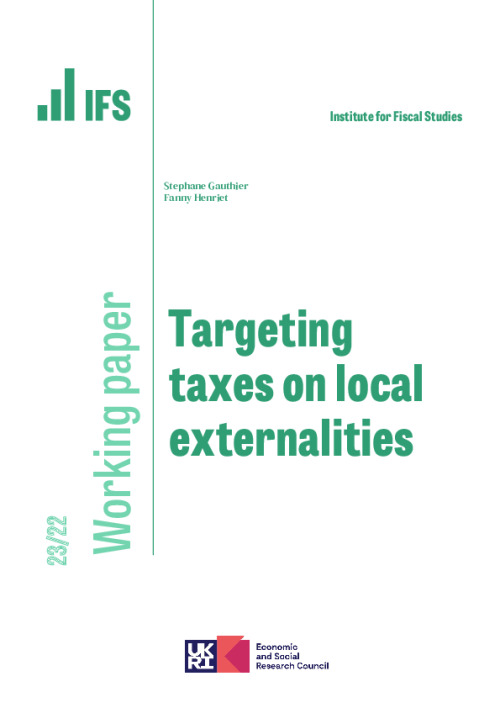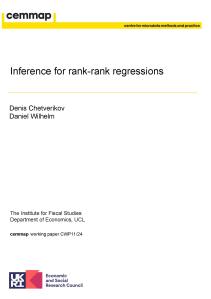Downloads

WP202322-targeting-taxes-on-local-externalities.pdf
PDF | 748.54 KB
We consider optimal anonymous consumption taxes in situations where the magnitude of an externality varies with individuals who cause it. For instance, urban fuel consumers generate greater pollution damages compared to rural consumers, but both groups are subjected to the same fuel tax. We provide a condition for the validity of the targeting principle, where external concerns are only addressed through the tax imposed on the commodity responsible for the externality. When this condition holds, one can separate the equity/efficiency and environmental components of this tax. An illustration suggests that Pigovian considerations would explain most of the fuel tax in France.
Authors

Research Associate University of Paris 1 Pantheon-Sorbonne and Paris School of Economics
Stéphane is a Research Associate at our Institute and a Professor of Economics at University of Paris 1 Panthéon-Sorbonne.
Researcher/Professor Paris School of Economics
Working Paper details
- DOI
- 10.1920/wp.ifs.2023.2223
- Publisher
- Institute for Fiscal Studies
Suggested citation
Gauthier, S and Henriet, F. (2023). Targeting taxes on local externalities. 23/22. London: Institute for Fiscal Studies. Available at: https://ifs.org.uk/publications/targeting-taxes-local-externalities (accessed: 30 June 2024).
More from IFS
Understand this issue

Election Special: Your questions answered
27 June 2024

Election Special: The big issues politicians haven't spoken about
25 June 2024

Election Special: The Labour manifesto explained
14 June 2024
Policy analysis

How would the parties’ tax and spending plans affect Scotland and Wales?
28 June 2024

What are the parties’ plans for benefits and taxes?
24 June 2024

Plaid Cymru manifesto: a response
13 June 2024
Academic research

Saving by buying ahead: stockpiling in response to lump-sum payments
2 February 2024

Inference for rank-rank regressions
28 May 2024

Sample composition and representativeness on Understanding Society
2 February 2024